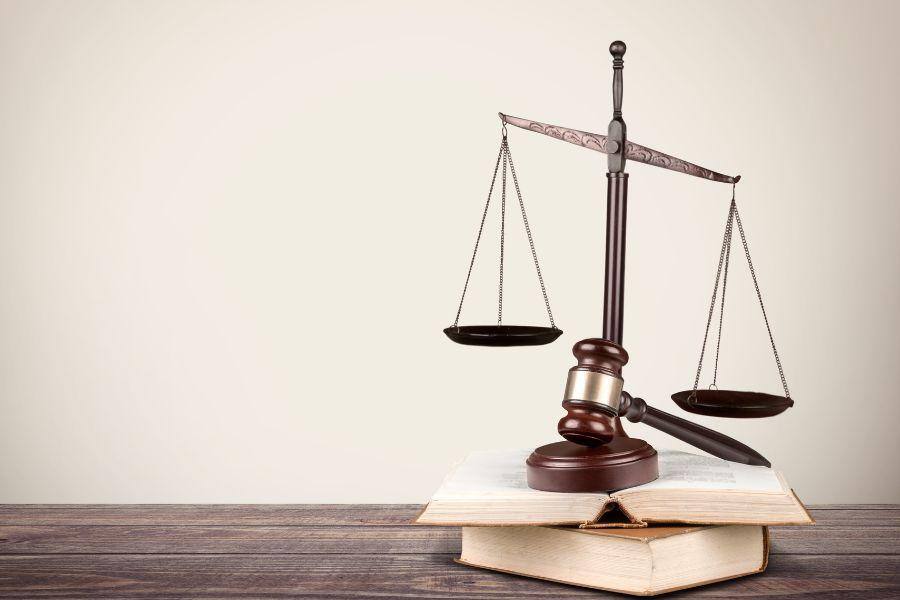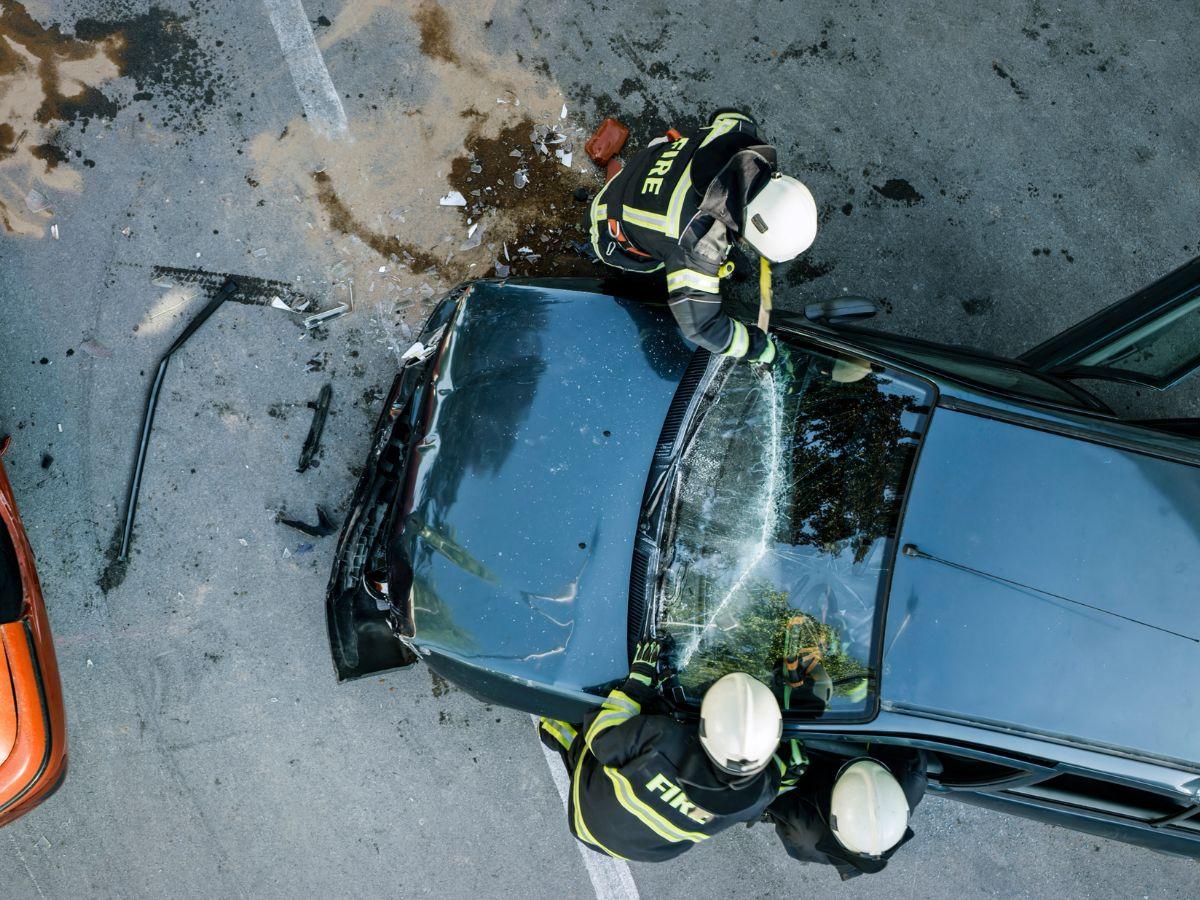How Weather Conditions Impact Car Accident Cases
Key Takeaways: Weather Influences Liability: Adverse weather conditions like heavy rain, icy roads, and fog significantly impact driving safety and...
Key Takeaways:
Fault isn't always clear in multi-vehicle accidents, as multiple drivers and factors can contribute.
Police reports and witness statements are crucial for identifying the liable party.
In this article, we'll explore how fault is determined in multi-car accidents, key factors influencing fault, common causes of multi-vehicle crashes, and the role of insurance companies.
Read on to learn about fault in multi-vehicle wrecks and how an experienced accident attorney can assist you through this challenging process.
Learn more about the effects of having a car accident on your record in Georgia.
Table Of Contents
Determining fault in multi-car accidents involves a careful examination of various factors.
Police reports play a crucial role in establishing fault.
Officers document the accident scene, gather witness statements, and note critical evidence such as skid marks and vehicle damage.
Witness statements provide firsthand accounts of the accident, helping to clarify the actions of each driver involved.
In multi-vehicle collisions, fault is determined by identifying the negligent driver whose actions initiated the chain reaction.
For instance, in a rear-end collision, the rear driver is typically at fault for not maintaining a safe distance.
However, in a multi-car pile-up, multiple drivers may share responsibility due to contributory negligence.
Collecting and preserving evidence at the accident scene is vital.
Photos, videos, and detailed notes can support your claim and help determine the liable party.
Additionally, insurance companies will conduct their investigations, often relying on police reports and evidence to determine fault.
Understanding these processes is essential for accident victims seeking fair compensation and navigating the complexities of multi-vehicle accident claims.

Determining fault in car accidents involves assessing several key factors.
Comparative and contributory negligence play significant roles in establishing liability.
Under comparative negligence, each driver’s share of fault is determined, which can affect their compensation.
Conversely, contributory negligence can bar recovery if a driver is found even slightly at fault.
In Georgia, the state follows a modified comparative negligence rule, where a driver can recover damages if they are less than 50% at fault.
However, their compensation is reduced by their percentage of fault.
If a driver is found 50% or more at fault, they cannot recover any damages.
The duty of care and its breach are critical in fault determination.
Every driver must adhere to traffic laws and signals, such as stopping at red lights and maintaining a safe distance.
Breaching the duty of care, like running a traffic signal or tailgating, can result in liability for the accident.
Driver actions, including speed and attention, significantly impact fault.
Speeding, distracted driving, and aggressive behavior can all contribute to multi-vehicle collisions.
For instance, distracted drivers who fail to notice brake lights can cause a chain-reaction accident.
In multi-car accidents, understanding these factors helps establish the negligent party.
Analyzing traffic laws, driver behavior, and evidence from the accident scene makes it more apparent who is at fault, aiding in the pursuit of fair compensation for accident victims.
Multi-vehicle collisions are intricate events involving three or more vehicles.
They often lead to complex insurance claims involving various scenarios, such as chain-reaction accidents and pile-ups.
These multi-car crashes often involve multiple parties, making it challenging to determine fault and liability.
Each driver’s actions, whether it's speeding, distracted driving, or failing to maintain a safe distance, are scrutinized to establish negligence.
Multi-vehicle accidents can lead to significant property damage, severe personal injuries, and intricate insurance claims.
The involvement of numerous insurance companies and varying state laws further complicates the process.
Victims may face difficulties securing fair compensation due to the shared responsibilities of the negligent drivers.
Here are some common causes of multi-vehicle collisions:
These causes contribute significantly to multi-car accidents, making it crucial for drivers to exercise caution and maintain safe driving practices to prevent such collisions.

Insurance companies play a crucial role in assessing multi-car accidents.
They evaluate the accident scene, review police reports, and consider witness statements to determine fault.
Liability coverage is essential, as it covers damages caused by the at-fault driver.
However, multi-vehicle collisions often complicate this process.
Multiple claims are filed in multi-car accidents, and insurance companies must navigate through each claim to establish liability.
Policy limits can pose significant challenges, as the combined damages may exceed the coverage amounts.
When this happens, securing fair compensation for all involved parties becomes difficult.
Insurance companies also consider contributory and comparative negligence, which can affect claim outcomes.
For example, if multiple drivers share fault, the insurance payout may be reduced based on each driver's degree of negligence.
Hiring an experienced car accident lawyer is crucial in multi-car accidents.
An attorney can navigate complex accident claims and negotiate with insurance companies to ensure fair compensation.
They analyze police reports, gather witness statements, and collect evidence to build a strong case.
For example, consider a multi-car pile-up where multiple parties are at fault.
An experienced attorney can identify the negligent drivers, assess contributory negligence, and determine liability.
This legal expertise is essential in negotiating with various insurance companies and handling policy limits challenges.
Additionally, a personal injury lawyer can represent accident victims in court, ensuring their rights are protected.
They work diligently to secure compensation for medical expenses, property damage, and pain and suffering.
With a skilled attorney, victims of multi-vehicle accidents can focus on recovery while their legal matters are expertly managed.
Determining fault in multi-car accidents is complex and involves factors like comparative negligence and the duty of care.
Understanding fault and legal nuances can significantly impact the outcome of your claim.
Insurance companies play a crucial role, but their processes can be challenging.
Hiring an experienced car accident lawyer is essential for navigating these complexities and securing fair compensation.
For personalized help, contact The Cotto Law Group.
Our car accident attorneys in Atlanta are ready to assist you in multi-vehicle accident claims.
We offer a free consultation to discuss your case and help you get the compensation you deserve.
Don’t navigate this challenging process alone—reach out today.
In a multi-car accident, the insurance of the at-fault driver(s) pays for the damages. If multiple drivers share fault, their respective insurance companies will cover the damages according to their percentage of fault.
In a 4 car rear-end collision, the fault typically lies with the driver who initiated the chain reaction. However, if each driver was following too closely, multiple drivers might share the fault.
In a 3-car rear-end collision, the rear driver is usually at fault for not maintaining a safe distance. They might share some responsibility if the middle car was also following too closely.

Key Takeaways: Weather Influences Liability: Adverse weather conditions like heavy rain, icy roads, and fog significantly impact driving safety and...

To secure maximum compensation in court for car accident victims, it is essential to identify a clear determining factor that establishes who exactly...

Key Takeaways: Claim vs. Lawsuit: Insurance claims are generally quicker and cover immediate damages through your provider, while lawsuits can...